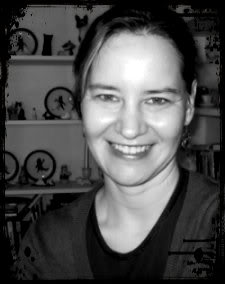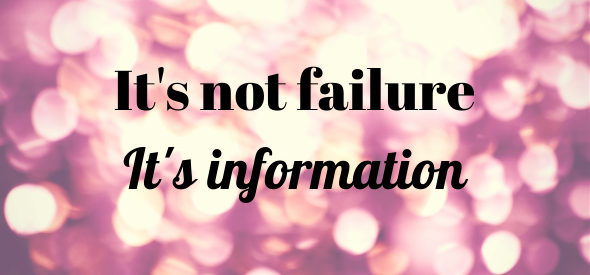 A note from Jenna: This guest post from the highly talented coach and writer, Jill Winski — whom I’m proud to have serving as a coach for my online Writer’s Circle coaching program — offers insights for writers who struggle to finish their writing projects.
A note from Jenna: This guest post from the highly talented coach and writer, Jill Winski — whom I’m proud to have serving as a coach for my online Writer’s Circle coaching program — offers insights for writers who struggle to finish their writing projects.
Read on to find out about what Jill has learned from her own process and from participating in the Circle.
Learning to finish
by Jill Winski
For more than two and a half years, I’ve been a participant in Jenna’s Writer’s Circle, and I’ve coached a small group in the Writer’s Circle for almost that long.
In some ways, I now divide my life into the pre-Writer’s Circle and during-Writer’s Circle eras. That’s because, in the Writer’s Circle, I’ve learned how to finish a novel draft. Before the Writer’s Circle, I knew how to make it about two-thirds of the way through.
And then — I’d stop.
There’s this quote from Neil Gaiman that one of my group members shared recently:
“Whatever it takes to finish things, finish. You will learn more from a glorious failure than you ever will from something you never finished.”
I don’t think this is always true for everything — some things are simply not worth finishing — but there is certainly a lot of truth there for me.
On finishing short stories
When I was in grad school, I learned to write — and finish — a short story. Because I carried my short stories to completion — even if they sucked — I learned a certain amount about the movement of a short story, about the promises set up in it, and about fulfilling those promises to the reader by the end. I wrote a good amount of short stories, and even had some of them published. I still have tons to learn about the art of short story writing, but, in finishing, I was able to let my own process truly sink in, let the story itself sink into my bones, and learn what could be cut away and what needed to emerge in the next draft.
On finishing novels
With novels, I never made it this far. When I joined the Writer’s Circle, I had two unfinished novel drafts. I had stopped writing them because I got lost.
I started writing the second novel because I believed I was bored with the first.
And the same thing happened.
I got lost.
I got stuck.
And I made the fact that I was lost and stuck mean that I was not a good writer. I didn’t decide this one day; it was sort of a “happening” over time, after grad school ended and I was no longer in as much contact with fellow writers.
I forgot — or maybe I never really understood — that all writers struggled. The longer I let my unfinished novels sit, the longer the drafts collected dust bunnies and cat hair in a pile next to my desk, the more sure I became that I had failed.
It’s not failure, it’s information
But one of my favorite mantras of the past couple of years is: “It’s not failure, it’s information”.
And that was where the Writer’s Circle came in for me. As part of logging in our daily progress, we answer a series of questions designed to bring awareness to our writing habit and process.
Awareness. For twenty years it’s been one of the most important themes in my life, but guess what? I never thought to apply it to my writing process.
I believed, for years, that writing just meant sitting down and pushing through even when it was hard.
And that worked. Until I got really, really stuck. And then it didn’t work anymore.
A novel is a vast thing, an unwieldy thing, a thorny thing. The opportunities to get lost, to go off the chosen path, are plentiful.
The more I logged in my daily progress in the Writer’s Circle and answered the questions, the more I became aware that my problem was this: I was afraid of being wrong. I was afraid of being mediocre. I was terrified of writing a shitty first draft. I just hadn’t known it before.
I actually believed I was bored
I was so afraid to know I was afraid that I’d actually believed I was bored.
It was one thing to write a shitty first draft of a short story; short stories were, by definition, short, and I could take a deep breath, jump in, and hope to come out on the other side in a couple of weeks.
But to write an entire draft of a novel and be, well, bad — for it to be far, far less than the vision of greatness I held in my head — seemed like too much.
Except I realized that’s exactly what I needed to do. And I only realized it by pausing enough to notice the thoughts I was having about my writing, about myself as a writer, and question them.
At the end of my second session in the Writer’s Circle, I finished my novel draft.
And a few months later, I went on to finish another.
I’ve seen this happen for the group members I coach in the Writer’s Circle, too. It’s incredibly exciting to see a fellow writer who’s been on a long journey reach a point of completion. And one of the biggest things I’ve learned while coaching in the Circle is that most of us have more days that feel like struggle than days where we feel “in the flow”.
And yet we’re all learning to finish, anyway.
My completed drafts do not match the vision I held in my head. But only in finishing did I actually see what was there, and only in finishing could I build the foundation for a better draft. I’m not saying we must always finish — but if we truly want to, we owe it to ourselves to give ourselves that gift.
Jill Winski is a certified life coach who offers her clients support for the vulnerability that comes with creativity. She continues her adventures in the often-rocky terrain of fiction and nonfiction, and you can find her online at www.jillwinski.com.
Thanks for reading!
Where are you with finishing? We’d love to hear your thoughts in the comments.
Warmly,



Hi Jill. Thank you for sharing this inspirational article. I loved the quote, “It’s not failure, it’s information”. I’ve been working on orienting my brain to see things this way; that is part of the reason I read the book RISE by Sarah Lewis (she talks about the gift of “failures” brought on by the creative process). In the midst of our busy lives, it is easy to get sidetracked and think that we might be wasting our time on our writing endeavors – but then again, we may not be, and we will never truly know until we reach the end.
Hi Cindy! I’m so glad the post resonated for you. I hadn’t heard of “Rise” but will definitely check it out — I love the idea of the seeing the gift in so-called “failures”! Thank you so much for reading and for sharing. :)
Hi Jill,
I think you hit the nail right on the head for me when you said, ” I was afraid of being wrong. I was afraid of being mediocre. I was terrified of writing a shitty first draft. ”
I have an idea for a story and have written about 24,000 words and have reached a point where I’m ‘stuck.’ Now I’m trying to go back and write an outline, thinking that will help and is what I should have done in the first place, but I’m not too sure about how to outline it properly and have taken to the internet in search for how to write a decent outline that I can follow.
Trouble is, the amount of outlines on the internet is endless and I feel stuck again in being able to chose the right one that will work and provide me with the direction that I need. I really enjoyed your article here. It is reminding me that it is okay, even crucial, to reach out and perhaps become a part of an accountability group such as this. I need to take a closer look at Jenna’s Writer’s Circle here.
Thanks again,
Boyd
Hi Boyd! I really hear you. I haven’t used outlines much myself, so I won’t make any suggestions there, but one thing I’ve found with first drafts is that, when I get stuck, it’s okay to simply jump forward to the next place in the story that I can clearly see and fill in the gaps when I get to the revision stage. For me, it’s imperative that I don’t let my “inner perfectionist” keep me going back and rewriting too much before I have a complete first draft. I find that if I can just move the draft forward one scene at a time without worrying about getting it right, some of the things I’m feeling stuck on are resolved in the telling. And yes, it truly does help to reach out for the right kind of support! I’m so glad the post spoke to you — thanks so much for commenting! :)